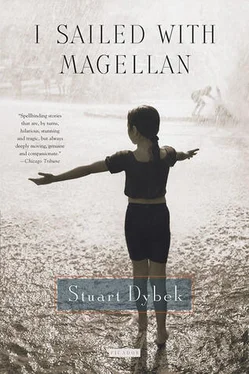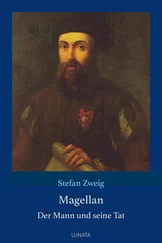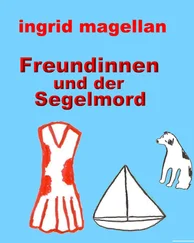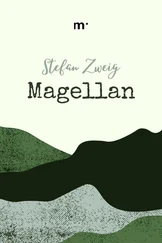“My parents grew up in New Jersey.” She’d slid over to the open door on the driver’s side and sat facing out with her legs crossed. They seemed to glow with the light of the polished temple. I could see she was thinking it over. “How do you propose to get over the fence? There’s barbed wire on top.”
“No problem.” I demonstrated, giving myself a boost off the bumper and flipping the fence. It was a maneuver I’d had down since I was a kid, but this time the tails on my tux caught on the barbs, yanking me back in midair, and, jacket shredding as I crashed, slammed me to the ground.
“Oh my God! Are you all right?” Laurel cried.
I stood up, brushed the cinders out of my palms, checked my skinned knee through the tear in the trousers, picked up the flask that had clattered off, and raised it in a toast. “Just kidding around. I got a little carried away,” I assured her. “There’s actually a gate you can squeeze through.”
“No,” Laurel said. “No there isn’t. There’s no gate. There’s no Blue Note, no Baha‘i, and if Baha’i is like this I don’t want to be there.” She swung her legs back into the car, slammed the door, and leaned out the window.
“I don’t want you to take this the wrong way, Perry, and think it means I don’t like you, or that I never want to see you again, because I really do like you, and I know I could get to like you a lot more, and I do want you to call me someday as soon as you get some professional help.” Then, she put the Olds into reverse, swung a U, and I watched the red taillights disappear.
Stosh and I toweled off with our T-shirts, dressed, and headed up the beach toward the break in the trees where a dry streambed led to the North Branch of the Chicago River. We crashed out of bramble and followed the river, ducking under an old concrete bridge. I’d never been farther upstream than that.
“Are you sure you can find your way back to these orchids?”
“I went into the jungle, Willy, and, by God, came out rich. Rich, I tell you, rich!”
Beyond the bridge the banks got steep. We rolled up our jeans and waded in over the tops of our gym shoes, keeping to the muddy ledge before the water dropped off. Cottonwoods angled out, and we picked our way over fallen trunks. Mosquitoes buzzed from marshy patches of shade.
At a bend, the river divided around flat, bleached slabs of limestone. We hauled ourselves up on a rock close to the bank. Stosh arranged a pack of matches, a crushed pack of Kools, his knife, and the twisted greasy reefer between us.
“Do you realize that this joint was made with one hundred percent pure Bigbo spit?” Stosh asked. “Not a pretty idea.” The secluded river seemed far away from Bigbo and the rumble of Western Avenue. Stosh held up his hands as if he’d just scrubbed for brain surgery, then delicately massaged a Kool over the water, letting the threads of tobacco float off until he was left with a hollow tube of cigarette paper.
“You know what’s spooky,” Stosh said, “is that every time Dahl and I break up, I know that should be it, but I don’t feel free. It’s like the breaking up is a stronger part of us being together than the actual being together …” He gave up as if it was beyond explaining and continued carefully untwisting the joint, concentrating on his task, not looking up. I’d never heard him talk about Dahl that way before and suddenly realized that things with her were bothering him more than he’d let on, and that of the two of us it was Stosh who was in over his head. He slit the joint with his knife and funneled the weed into the tube of cigarette paper, twisted the end, and handed it to me.
“The Bo always has dynamite weed, but personally, I’d rather not smoke Bigbo spit,” Stosh said.
The match flared and the tip of the reefer crackled as I inhaled. I held in the smoke the way I held my breath swimming under water.
“Did you ever think,” I asked, exhaling, “that it might be Bigbo spit that’s the active ingredient?”
We passed the joint, surrounded by a stillness in which the birds chirped louder and more musically and the reflections of trees shimmered like a green glaze on the olive river. Sunlight sparkled off floating motes of scum and the drizzle of invisible insects. When we waded off the rock into the reflections of the trees along the bank, it felt as if we were moving like mimes. I could see the wakes of the water spiders we disturbed fanning away from us. I was thirsty. My mouth felt too dry to talk. It seemed we’d been slogging a long time.
“We’re lost, aren’t we?” I finally asked. “We’ll never find these orchids.”
“Two braves from the Fugowi tribe go hunting,” Stosh said. “They go for miles, many moons, deep into the forest until they realize they’re lost. ‘Hey, not to worry,’ one of them says and climbs to the top of a towering tree, scans the landscape, and yells, ‘Where the Fugowi?’”
“Your father tell you that one, too?”
“As a matter of fact it’s a pharmacy joke.”
“You’ll probably have a seminar in those when you get to pharmacy school.”
Stosh sadly hung his head. Although he’d won the Rexall scholarship, he didn’t want to study pharmacy, but it was that or having to work his way through college.
We both flinched at the shadow of a vampire bat that became a tiger swallowtail gliding over our heads as if leading us upriver before disappearing into a haze of light. It was hard to tell how long we’d actually been slogging. I remembered other times stoned when it seemed to take all night just to walk up a familiar alley.
“Hey, Katman,” Stosh asked as if we’d been having a conversation, “so what are you going to do?”
“I’m going to Mexico.”
“Right. But what if we don’t get it together, or even if we do, when we get back wearing our huaraches, then what?”
“I have my prospects,” I said, “a position in the ice-cream sector.”
“You mean like pedaling an ice-cream cart?”
“And then there’s cans. America will always need more cans.” I’d worked on the production line at the American Can Company briefly the summer before. The one thing it taught me was that I didn’t want to spend my life as my father had, on a production line.
The bank turned increasingly swampy. Cattails and reeds sprouted waist high. We balanced along partially submerged logs and hopped from rock to rock, sending frogs and turtles plopping in. Stosh suddenly sank in ooze up to his thighs. I leapt to the steep bank, grabbed his flailing arm, hoisted hard, and the mud made a smooching sound as he floundered free. His jeans were entirely slimed in mud.
“Sonofabitch,” he said. “I lost a fucking shoe.”
“I went into the jungle, Willy, and, by God, I came out without my shoe,” I managed to choke out before doubling over.
“Oh no, not a fucking laughing fit! You goddamn dope addicts have no compassion,” Stosh said, breaking up, too. We collapsed side by side in the weeds on the bank under the sun, howling while the birds in the trees chittered back.
“Shhh,” Stosh said. “I hear celestial music.”
“You’re hallucinating on Bigbo spit.”
“No, listen.”
We clawed up the steep bank toward the sound and peered through a screen of brush. An expanse of perfect lawn, bounded by sculpted hedges that would have employed a truckload of Manpower workers to maintain, stretched to a turreted mansion that made the great houses lining the streets of Evanston look like so many bungalows. In a formal garden, a string quartet played beside a fountain. White-gloved butlers in livery that resembled my Gents evening suit transported flashing trays of cocktails to the guests stroking croquet balls. A woman with a sleek, muscled Doberman was strolling across the lawn. The dog broke from its leash, loped in circles, then froze and, from the distance, locked on to my eyes. For the second time that day I felt the fury in a stare.
Читать дальше












